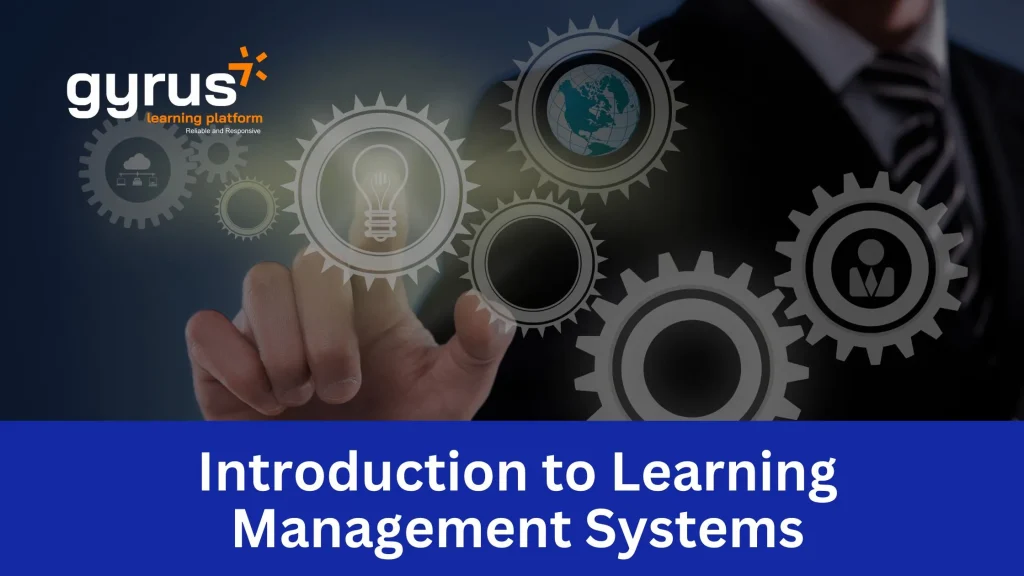Selecting the Best Discovering Management System for Your Company
Picking the optimal Knowing Administration System (LMS) for your organization is a complex decision that needs careful consideration of various components. From specifying precise understanding purposes that reverberate with your strategic vision to reviewing customer experience, each element plays a pivotal function in the overall performance of the system. In addition, understanding combination abilities and making certain scalability for future needs can not be ignored. As organizations pursue effectiveness and growth, the choice of an LMS comes to be increasingly considerable. What are the crucial factors to consider that can influence your decision-making process?
Specify Your Discovering Objectives
Defining clear discovering purposes is essential for the effective execution of an Understanding Monitoring System (LMS) These objectives work as a roadmap, assisting the growth of web content, evaluations, and general training methods within the LMS. By developing details, measurable, attainable, relevant, and time-bound (WISE) goals, organizations can ensure that the learning experiences are straightened with their critical objectives and learner needs.
Efficient discovering objectives need to envelop what students are expected to recognize or have the ability to do upon completion of a course or training program. This clarity not only help in web content production yet additionally promotes the analysis of learner progress and the overall efficiency of the LMS. Canvas Singapore. Additionally, distinct goals allow stakeholders to examine whether the picked LMS functionalities and features line up with their instructional objectives.
Assess User Experience
Once finding out goals have been established, assessing individual experience comes to be a crucial following action in choosing a proper Discovering Administration System (LMS) Individual experience encompasses the total fulfillment and simplicity with which learners engage with the system. A properly designed LMS must promote intuitive navigating, making certain that users can situate courses, products, and assistance easily.
To evaluate user experience, think about conducting use testing with a depictive sample of end-users. This can give important understandings right into exactly how learners engage with the system. Key factors to review include the LMS's interface layout, ease of access functions, mobile compatibility, and the clarity of guidelines provided. Individual feedback is crucial; gathering studies or conducting meetings can disclose common pain factors and areas for improvement.
In addition, evaluate the availability of support sources, such as tutorials and assistance facilities, which can boost the individual experience. The responsiveness of customer support is likewise essential; prompt support can considerably alleviate aggravations that individuals might encounter. Ultimately, selecting an LMS that prioritizes user experience not only enriches the learning process however likewise promotes higher interaction and fulfillment amongst learners.

Evaluate Combination Capacities
Identifying the importance of smooth functionality, evaluating integration capabilities is important when picking an Understanding Monitoring System (LMS) An effective LMS must facilitate interoperability with existing systems, such as Human Source Administration Systems (HRMS), Consumer Partnership Monitoring (CRM) systems, and other instructional devices. This assimilation boosts information flow, minimizes management concerns, and ensures a cohesive learning environment.
When analyzing an LMS, think about the kinds of integrations offered. Seek Application Programming Interfaces (APIs), Solitary Sign-On (SSO) abilities, and pre-built ports that enhance combination processes. Furthermore, verify the LMS's ability to incorporate with third-party tools, such as content libraries or analysis platforms, which can considerably enhance the knowing experience.

Think About Scalability and Flexibility
As companies advance, the capability of a Discovering Management System (LMS) to range and adjust comes to be progressively important. A scalable LMS can fit growth more info here in customer numbers, training course offerings, and web content without endangering efficiency or user experience. As companies expand, whether via enhanced employees, brand-new places, or varied training requirements, the LMS should seamlessly grow along with these modifications.
Adaptability is similarly important; an efficient LMS must sustain various discovering methods, such as online, blended, and mobile understanding. great post to read This versatility allows organizations to react quickly to emerging fads in training and development, making sure that they can offer engaging and appropriate discovering experiences - Singapore LMS. Additionally, the system must provide customizable functions, enabling organizations to tailor the LMS to their certain needs and branding
Moreover, a versatile LMS ought to integrate quickly with existing systems and devices, helping with a cohesive learning ecosystem. Hence, when selecting an LMS, it is important to assess not only its present abilities however additionally its potential to adjust and expand abreast with the company's strategic goals and progressing finding out requirements. This foresight can considerably improve the long-lasting feasibility of the selected LMS.
Review Costs and Budgeting
When evaluating a Learning Monitoring System (LMS), evaluating expenses and budgeting is vital to guarantee that the financial investment straightens with the company's monetary capabilities and critical purposes. Organizations ought to begin by recognizing the overall expense of ownership, which includes licensing costs, application prices, maintenance, and review any added expenditures such as training and technical assistance.
It is critical to compare numerous LMS options, as rates models can vary considerably among suppliers. Some systems may supply a subscription-based version, while others might bill an one-time charge. Organizations needs to likewise take into consideration the scalability of the LMS; as they grow, the expense framework may alter, influencing long-term budgeting.

Verdict
Picking an ideal Learning Monitoring System (LMS) is necessary for attaining organizational learning purposes. Inevitably, the best LMS offers as an essential tool in fostering a reliable learning setting and driving business success (LMS Singapore).
Picking the optimum Understanding Administration System (LMS) for your organization is a complex choice that needs cautious factor to consider of numerous aspects.Specifying clear discovering objectives is essential for the successful implementation of an Understanding Administration System (LMS)Once learning purposes have actually been established, reviewing individual experience ends up being a crucial next step in picking an appropriate Learning Administration System (LMS)As organizations develop, the capacity of a Discovering Management System (LMS) to range and adapt becomes significantly essential.Picking a proper Knowing Monitoring System (LMS) is vital for achieving organizational learning goals.